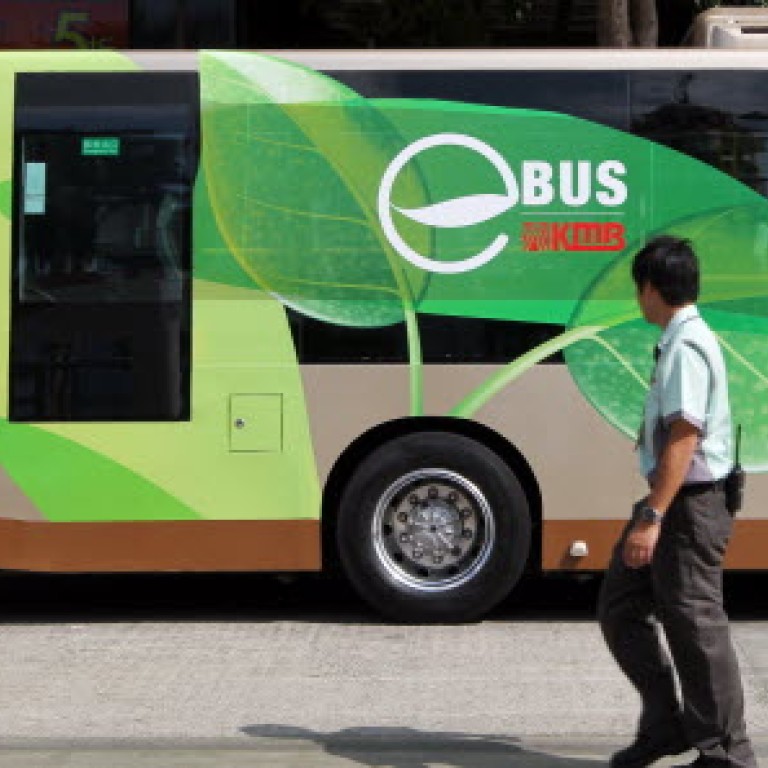
Speed up Hong Kong's use of electric buses
Hong Kong is well known for being receptive to innovation and technology. But its reputation was put to the test when it came to green transport. It was not until 2011 that the government set aside HK$180 million to help companies try out electric-powered buses. After waiting for two years, the first public service hit the streets on Monday. Belated as the move was, the KMB single-decker had a promising start.
Hong Kong is well known for being receptive to innovation and technology. But its reputation was put to the test when it came to green transport. It was not until 2011 that the government set aside HK$180 million to help companies try out electric-powered buses. After waiting for two years, the first public service hit the streets on Monday. Belated as the move was, the KMB single-decker had a promising start. But with just four scheduled trips a day as a trial, there is still a long way to go before all bus companies will take their polluting fleets off the road.
If our growing affluence and environmental awareness are a fuel for green living, the worsening roadside pollution over recent years should be the catalyst. With the city's strong appetite for innovation, one would have thought electronic buses should have become an integral part of our public transport system by now. In reality, however, our journey has just begun. Other Asian regions are already making headway. South Korea, for example, has built roads with embedded cables that charge buses while they are running. Mainland cities are also miles ahead, thanks to a clear government drive and the home-grown BYD, the world's largest e-vehicle manufacturer. So, why is the city lagging behind?
Understandably, safety and reliability have to come first. Additional prudence is called for, after an electric taxi crashed and caught fire in Shenzhen last year, killing all three on board. Cost is another key concern. Without the government subsidy, bus companies probably have no incentive to bring in the 36 battery powered buses as promised.
The positive feedback from the maiden ride is welcome news. But far from just a novelty for bus aficionados, they should be made the backbone of future bus fleets. Officials have rightly made public transport with zero emissions the ultimate goal. But it leaves a lot to be desired if a firm timetable cannot be given. Both the government and operators should make a clear commitment in accelerating development.

